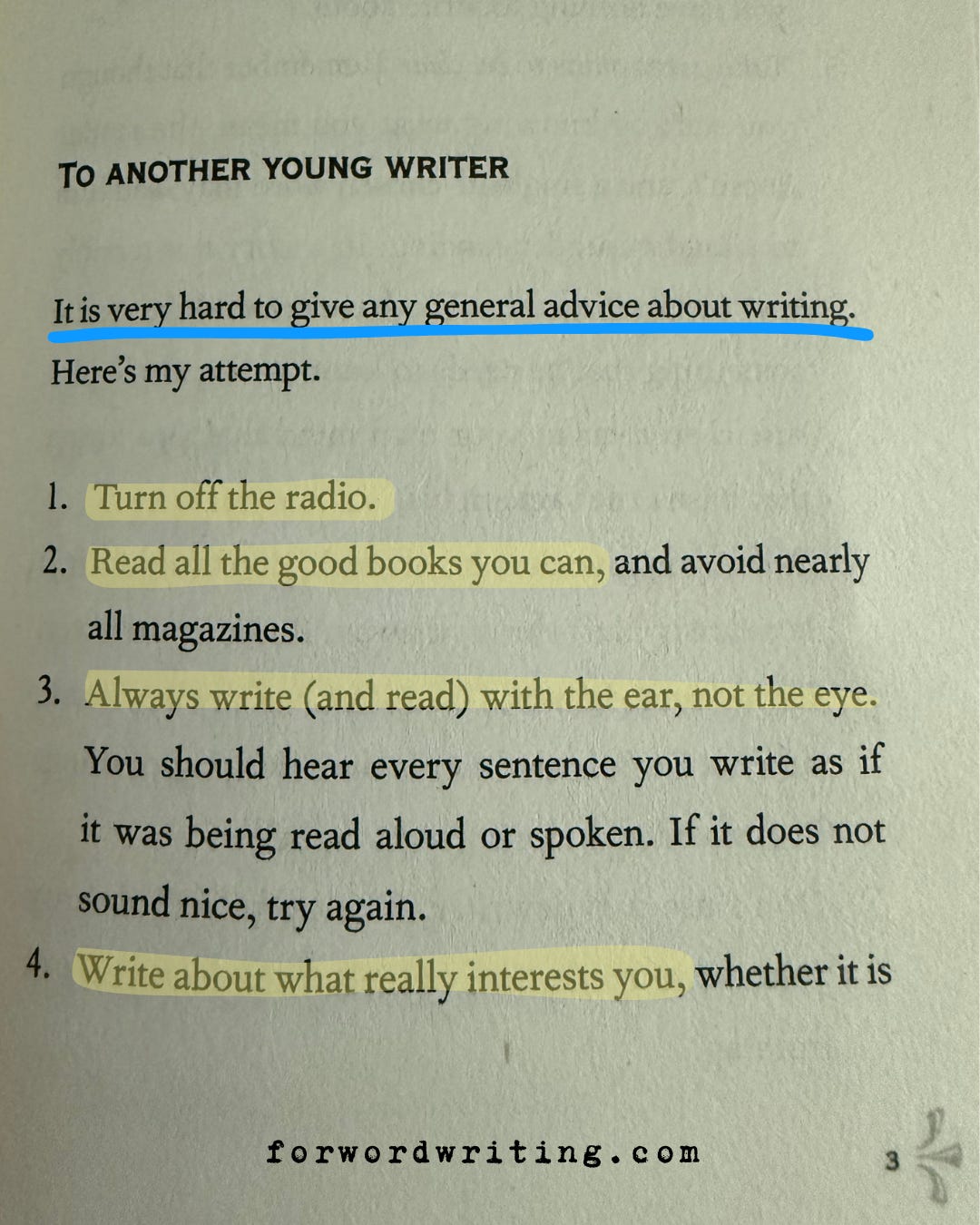8 Writing Lessons from C.S. Lewis
No lions, witches, or wardrobes required.
TL;DR
#1: Turn off the (news, social media, TV, distraction).
A couple years ago, my wife bought me a copy of C.S. Lewis’s book On Writing (And Writers) and last year, I finally got around the reading it. But the best 2.5 pages come from a letter he wrote to a young fan in 1959, where he offered the following advice [and it mostly holds up today]:
1. Turn off the radio.
- Insert "the news." Or “social media.” Or “TV.” Or whatever your preferred method of distraction is.
2. Read all the good books you can, and avoid nearly all magazines.
- Insert "avoid nearly all online articles” in place of “magazines.” Yes, there are exceptions, but if you want to write a great book…then read great books. It’s not rocket science…but it is neuroscience.
3. Always write (and read) with the ear, not the eye.
- As silly as it feels, you need to read your work aloud. Not only will you find so many typos, but you’ll find clunky sentences far easier.
4. Write about what really interests you.
- Interest trumps expertise. Every time. The best choice you can make in writing or business is to say, “If it’s not a hell yeah, then it’s a hell no.”
5. Take pains to be clear.
- Clear > Clever. That’s all that needs to be said.
6. When you give up a bit of work, don't throw it away. Put it in a drawer. It may come in useful later.
- Nothing is wasted. I have something called an “Idea Bank” where I log away little story ideas. These ideas have saved me so many times from so-called Writer’s Block or even made their way into client projects when I realized it was a better fit for them.
7. Don't use a typewriter. The noise will destroy your sense of rhythm.
- Translation: Great writing has rhythm. Also, only pretentious people use typewriters nowadays. But the biggest lesson really is about the rhythm of how the words work together. When you connect this tip to #3, your writing transforms.
8. Be sure you know the meaning of every word you use.
- Translation: Stop trying to sound smart. Instead, make the reader feel smart. This is also a good rule for using a Thesaurus: If you wouldn’t use the word in real life, then it doesn’t go on the page. Period.
Also, can we take a moment to acknowledge the humility on this page? One of the bestselling authors of the past hundred years said this was his “attempt” to give writing advice.
Pretty damn good attempt…
Which tip is your favorite? Which one are you going to try out this week?
Writing a great business book doesn’t have to be a mystery. I spent hours analyzing the Top 25 bestselling business books and the methods their authors used. Grab a cheat sheet. Steal their moves:
Download your copy here.
Ways to Support this Newsletter if You’re Feeling Supportive:
Share this with someone you know via the handy little button below.
If you suck at saving money and want to earn $5 just for sucking less at saving money, then sign up for the Acorns app. They’ve helped me sneakily save money for me and my kids. You’ll get a $5 thank you after your first deposit.




